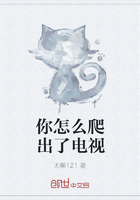For more than a century and a half reform of the Church "in its head and members" was the watchword both of the friends and the enemies of religion. Earnest men looked forward to this as the sole means of stemming the tide of neo-pagani** that threatened to engulf the Christian world, while wicked men hoped to find in the movement for reform an opportunity of wrecking the divine constitution that Christ had given to His Church. Popes and Councils had failed hitherto to accomplish this work. The bishops had met at Constance and Basle, at Florence and at Rome (5th Lateran Council), and had parted leaving the root of the evil untouched. Notwithstanding all these failures the feeling was practically universal that in a General Council lay the only hope of reform, and that for one reason or another the Roman Curia looked with an unfavourable eye on the convocation of such an assembly. Whether the charge was true or false it was highly prejudicial to the authority of the Holy See, and as a consequence of it, when Luther and his followers appealed from the verdict of Leo X.
to the verdict of a General Council, they evoked the open or secret sympathy of many, who had nothing but contempt for their religious innovations. Charles V., believing in the sincerity of their offer to submit themselves to the judgment of such a body, supported strongly the idea of a council, as did also the Diets held at Nurnberg in 1523and 1524.
The hesitation of Adrian VI. (1522-3) and of Clement VII. (1523-34) to yield to these demands was due neither to their inability to appreciate the magnitude of the abuses nor of their desire to oppose any and every proposal of reform. The disturbed condition of the times, when so many individuals had fallen away from the faith and when whole nations formerly noted for their loyalty to the Pope threatened to follow in their footsteps, made it difficult to decide whether the suggested remedy might not prove worse than the disease.
The memory, too, of the scenes that took place at Constance and Basle and of the revolutionary proposals put forward in these assemblies, made the Popes less anxious to try a similar experiment with the possibility of even worse results, particularly at a time when the unfriendly relations existing between the Empire, France, and England held out but little hope for the success of a General Council. As events showed the delay was providential. It afforded an opportunity for excitement and passion to die away; it helped to secure moderation in the views both of the radical and conservative elements in the Church; and it allowed the issues in dispute to shape themselves more clearly and to be narrowed down to their true proportions, thereby enabling the Catholic theologians to formulate precisely the doctrines of the Church in opposition to the opinions of the Lutherans.
Clement VII. (1523-34), one of the de' Medici family, succeeded to the Papacy at a most critical period in the civil and religious history of Europe. The time that he spent at the court of his cousin, Leo X., and the traditions of his family and of his native city of Florence made it almost impossible for him to throw himself into the work of reform or to adopt the stern measures that the situation demanded. Instead of allying himself closely with Charles V. or Francis I. of France, or better still of preserving an attitude of strict neutrality towards both, he adopted a policy of vacillation joining now one side now the other, until the terrible sack of Rome by the infuriated and half-savage soldiery of Germany forced him to conclude an agreement with the Emperor. During the earlier years of Clement VII.'s reign the German people, Catholic as well as Lutheran, demanded the convocation of a general or at least a national council, and their demands met with the approval of Charles V. The naturally indolent temperament of the Pope, the fear that the eagerness for reform might develop into a violent revolution, and the danger that a council dominated by the Emperor might be as distasteful to France and England as dangerous to the rights and prerogatives of the Holy See, made him more willing to accept the counsels of those who suggested delay. When peace was at last concluded between the Pope and the Emperor (1529) Charles V. had changed his mind about the advisability of a General Council, having convinced himself in the meantime that more could be done for the cause of peace in his territories by private negotiations between the different parties.
It was only on the accession of Paul III. (1534-49) that a really vigorous effort was made to undertake the work of reform. The new Pope, a member of the Farnese family, was himself a brilliant Humanist, a patron of literature and art, well known for his strict and exemplary life as a priest, and deservedly popular both with the clergy and people of Rome. His one outstanding weakness was his partiality towards his own relatives, on many of whom he conferred high positions both in church and state. In justice to him it should be said, however, that the position of affairs in Rome and in Italy made such action less reprehensible than it might seem at first sight, and that he dealt severely with some of them, as for example, the Duke of Parma and Piacenza, once he discovered that they were unworthy of the confidence that had been reposed in them. He signalised his pontificate by the stern measures he took for the reform of the Roman Curia, by the appointment of learned and progressive ecclesiastics like Reginald Pole, Sadoleto, Caraffa, and Contarini to the college of cardinals, and by the establishment of special tribunals to combat heresy.















